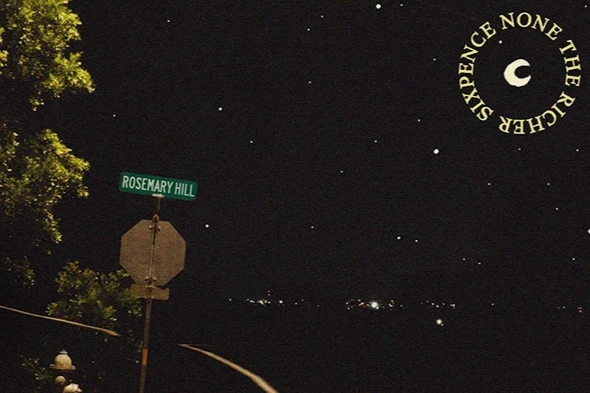On August 25, 1998, singer and rapper Lauryn Hill released her debut album “The Miseducation of Lauryn Hill” following a series of circumstances in her life, including her pregnancy, her departure from the Hip Hop trio Fugees and her subsequent hiatus from the music industry. Now, after 25 years, “The Miseducation of Lauryn Hill” has won five Grammy awards, an inclusion in the National Museum of African American History and Culture’s library and snagged the 10th spot on The Rolling Stones’ 500 Greatest Albums of All Time.
“The Miseducation of Lauryn Hill” borrows its name from author and historian Carter G. Woodson’s “The Mis-education of the Negro,” which encouraged self-education among Black people with the goal of wresting control from the greater “system.” Similarly, Hill uses “The Miseducation of Lauryn Hill” to document and define her personal struggles and successes with the goal of self-empowerment. Keeping this in mind, “The Miseducation of Lauryn Hill” celebrates Hip Hop, Black culture and Hill’s spiritual journey as a Black woman in the music industry. Hill wrote every song by herself except for “Superstar” and the song “The Miseducation of Lauryn Hill.” For these songs, she collaborated with songwriters Tejumold Newton, Johari Newton and James Poyser. In addition, Hill covered “Can’t Take My Eyes Off You (I Love You Baby)” for the album.
One of the best aspects of this album is the attention to detail and Hill’s ability to tell a story. Even the introduction to the album — simply titled “Intro” and only 45 seconds long — has substance to add. “Intro” sees an unnamed teacher taking attendance in a school. When he calls Hill’s name, no one answers, implying that Hill has escaped the classroom to begin her own self-education.
“Lost Ones” is the first track on the album, and it’s an energetic jumpstart. Right away, the strong backbeat intrigues the listener, but it’s Hill’s assertive voice that draws the same listener’s attention. Her flow and breath control is incredibly steady, and she spits out each bar with a well-deserved confidence. Hill’s lyrics punch down to the core as they detail the vital principle of being unapologetically herself. In one verse, she raps, “Miscommunication leads to complication/My emancipation don’t fit your equation/I was on the humble, you on every station,” displaying the way that others criticized Hill for unapologetically being herself. Still, Hill remains poised, declaring in the chorus that ”You might win some, but you just lost one” — meaning that Hill is successful despite the criticism.
“Ex-Factor” contrasts “Lost Ones” in the same way that red contrasts blue — stepping away from the self-assured lyrics and strong backbeat, “Ex-Factor” is a soulful ballad that begs a loved one to explain the hurtful behavior they’ve consistently displayed. Toxic relationships is a common theme in the album — as explored in “When It Hurts So Bad” and “I Used to Love Him” — but in this song, she acknowledges that the best option is to let each other go so they can both be happy, singing, “’Cause no one’s hurt me more than you/And no one ever will.” The lyrics are raw, and “Ex-Factor” proves that Hill can sing just as well as she can rap for unaware listeners, with her controlled riffs, insane harmonies and powerful vibrato. The combination of the song’s sentimentality and the melodic, shimmery instrumentals has resulted in “Ex-Factor”’s breakout success and a popular song, even with people unfamiliar with Hill as an artist, peaking at No. 21 on Billboard Hot 100.
Unabashedly, “Final Hour” is one of my favorite tracks from the album due to its catchy tune and the clever wordplay she utilizes throughout the song. Typically, Hill’s reputation is as a singer, which makes sense since she’s well-known for songs like “Ready or Not” and “Killing Me Softly (With His Song).” However, her talent as a rapper is unbelievable — her lyricism is tight and smart, and vocal attributes like her presence and flow are well-established — and she absolutely demonstrates her gift in “Final Hour.” The song immediately begins with a head-bopping beat and a melodious flute that supports Hill’s voice as she’s rapping. There’s a part of the song, approximately two minutes and 11 seconds in, where the guitar and flute fades, leaving Hill’s vocals on the tip of acapella, and it’s like magic — I can never control the impressed shiver that rolls down my spine.
There are relatively few features on the album, but all of them are absolutely amazing. Hill’s acoustic Spanish guitar-driven ode to her son, “To Zion” is supplemented by guitarist Carlos Santana’s instrumentals, creating an uplifting, spiritually infused love letter to Zion David Marley. “I Used to Love Him” features entertainer Mary J. Blige, and the two exchange verses as well as supporting harmonies against an upbeat backdrop. In “Nothing Even Matters,” singer D’Angelo and Hill overlap each other’s voices with smooth riffs and adlibs to narrate a relationship full of love. Each guest artist on “The Miseducation of Lauryn Hill” complements Hill’s voice with their own — or, in Santana’s case, his guitar.
The titular track, “The Miseducation of Lauryn Hill,” is the 14th song on the album. “The Miseducation of Lauryn Hill” is an intimate melody, infused with a lulling piano, that focuses on Hill’s journey of self-discovery. Her lyrics are vulnerable, but her voice is compellingly weighty. Lines like “But deep in my heart, the answer, it was in me/And I made up my mind to define my own destiny,” signify that Hill has been sufficiently self-educated, and she found her passion and herself in the process. ”The Miseducation of Lauryn Hill” is an introspective track that brings the album to a satisfying conclusion.
Within “The Miseducation of Lauryn Hill,” Hill was completely masterful and meticulous with every aspect of the album — from song titles to lyrics to the various moods and messages she wanted to portray. In “Doo Wop (That Thing),” she uplifts and challenges Black women to distance themselves from Eurocentric beauty standards, an early musical example of Black feminism. In addition, Hill utilizes a plethora of techniques, including back phrasing and wordplay to provoke imagery, like in “Everything is Everything.” She also is credited with pioneering melodic rap, bringing into the mainstream and influencing various artists like singer Beyoncé and entertainer Donald Glover, also known as Childish Gambino. With such a strong legacy and impact, it is a disservice to call this album anything less than iconic.
A rarity in “The Miseducation of Lauryn Hill” is that there isn’t a bad song on this album. There’s not even a song that would qualify as mediocre — the production is cohesive and uniquely stylistic, the lyrics are well-chosen and meaningful and in every song, Hill’s passionate voice shines. Even the songs that I’d hypothetically rank near the bottom of the list, like “Every Ghetto, Every City” and “Superstar,” are still songs that I really like and are incredibly well-produced. I can’t imagine “The Miseducation of Lauryn Hill” without any of the songs on the current tracklist — all of the songs round out the album to complete a story of love, loss and empowerment. Every single element on the album is deliberately placed and I will never not be in awe of just how great this album is. In my seventeen years of living, this is the only album I can listen to without skipping a track.
“The Miseducation of Lauryn Hill” is an emotional rollercoaster, but it’s a ride that mirrors life. An empowering album that CPR’d the life back to Hip Hop after rappers Tupac Shakur and Notorious B.I.G’s deaths still not only holds up 25 years later, but is a shining beacon of once-in-a-lifetime talent. The Pathfinder rates “The Miseducation of Lauryn Hill” a 10/10.





![Pantone’s selection of the 2025 Color of the Year is revealed: Mocha Mousse. Ceramics teacher Ashley Drissell enjoys this year’s selection. “Maybe it’s the name but [Mocha Mousse] reminds me of chocolate and coffee. It makes me hungry. It’s very rich and decadent,” Drissell said.](https://pwestpathfinder.com/wp-content/uploads/2025/02/DSC_0015-1200x800.jpg)








![Junior Fiona Dye lifts weights in Strength and Conditioning. Now that the Trump administration has instituted policies such as AI deregulation, tariffs and university funding freezes, women may have to work twice as hard to get half as far. "[Trump] wants America to be more divided; he wants to inspire hatred in people,” feminist club member and junior Clara Lazarini said.](https://pwestpathfinder.com/wp-content/uploads/2025/05/Flag.png)
![As the Trump administration cracks down on immigration, it scapegoats many immigrants for the United States’ plights, precipitating a possible genocide. Sophomore Annabella Whiteley moved from the United Kingdom when she was eight. “It’s pretty scary because I’m on a visa. When my visa expires next year, I’m not sure what’s going to happen, especially with [immigration] policies up in the air, so it is a concern for my family,” Whiteley said.](https://pwestpathfinder.com/wp-content/uploads/2025/05/DSC_0077-7copy.jpg)
![Shifting global trade, President Donald Trump’s tariffs are raising concerns about economic stability for the U.S. and other countries alike. “[The tariffs are] going to pose a distinct challenge to the U.S. economy and a challenge to the global economy on the whole because it's going to greatly upset who trades with who and where resources and products are going to come from,” social studies teacher Melvin Trotier said.](https://pwestpathfinder.com/wp-content/uploads/2025/05/MDB_3456-1200x800.jpg)

![Pitching the ball on Apr. 14, senior Henry Wild and his team play against Belleville East. Wild was named scholar athlete of the year by St. Louis Post-Dispatch after maintaining a high cumulative GPA and staying involved with athletics for all of high school. “It’s an amazing honor. I feel very blessed to have the opportunity to represent my school [and] what [it] stands for,” Wild said.](https://pwestpathfinder.com/wp-content/uploads/2025/05/unnamed-6-1200x714.jpg)
![Red, white and blue, the American flag holds the values of our democracy. The fight that we once endured has returned, as student journalists and senior correspondents across the country are losing their voices due to government control. “[Are] the White House and [the] government limiting free speech [and] freedom of the press? Yes [they are],” chief communications officer of the Parkway School District and former journalist Elisa Tomich said.](https://pwestpathfinder.com/wp-content/uploads/2025/03/Untitled-design-14.jpg)
![Freezing in their position, the Addams Family cast hits the “rigor mortis” pose after cast member and senior Jack Mullen, in character as Gomez Addams, calls out the stiff death move. For the past four months, the combined company of cast members, orchestra pit, crew and directors all worked to create the familial chemistry of the show. “I’m excited for [the audience] to see the numbers, the music, the scenes, but I also just love all the technical aspects of it. The whole spectacle, the costumes, makeup and the people that put in the work backstage in order to make the show successful on stage. I’m excited for people to see and appreciate that,” Mullen said.](https://pwestpathfinder.com/wp-content/uploads/2025/03/DSC0116-1200x800.jpg)
![A board in the Parkway West counseling department displays pennants of selective universities. With a wide range of students interested in attending, it’s important that these schools have clear priorities when deciding who to admit. “[Washington University] had the major that I wanted, psychology, philosophy, neuroscience. That's a holistic study of the brain, and [WashU is] the only college in the world that offers that. That's the main reason I wanted to go; I got into that program,” senior Dima Layth said.](https://pwestpathfinder.com/wp-content/uploads/2025/02/Flag-1.png)


Brinda Ambal • Dec 7, 2023 at 12:24 pm
What a well-written story, Elizabeth. It’s a pleasure to see how your voice has matured over time while still maintaining the certain spark you’ve had since I first got to read your work. Your words have the power to make a reader care about something they hadn’t ever even thought about before.
Emily Early • Dec 5, 2023 at 5:46 pm
SOOOOO good Elizabeth 🙂
Will Gonsior • Dec 4, 2023 at 2:26 pm
YESSSS thank you Elizabeth!!! If you hadn’t written this I would have lol
15. Can’t Take My Eyes Off of You – Ms. Hill puts her great voice on display, but there’s not as much appeal to a Lauryn Hill cover that doesn’t feature heavy revision like Killing Me Softly because of how talented she is as a writer and producer.
14. Nothing Even Matters
13: The Miseducation of Lauryn Hill
12: When it Hurts So Bad
11: I Used to Love Him – Mary J and Ms. Hill go so well together
10: To Zion – Santana is awesome here but this is otherwise a mildly repetitive song.
9: Everything is Everything
8: Every Ghetto, Every City
7: Forgive them Father
6: Superstar – This is the first of the elite tier of songs. “Now don’t you understand, man, universal law? What you give out comes back to you, star! Never underestimate those who you scar ’cause karma karma karma comes back to you hard” is just such a good verse.
5: Tell Him – The gospel influence here feels strong.
4: Lost Ones – Just an S-tier Wyclef Jean diss track. Such good rapping.
3: Doo Wop – thoughtful, prescient, catchy.
2: Ex-Factor – A tough topic (psychological abuse) met with intricate verse.
1: Final Hour – Maybe the most quotable song of all time. I mean that.